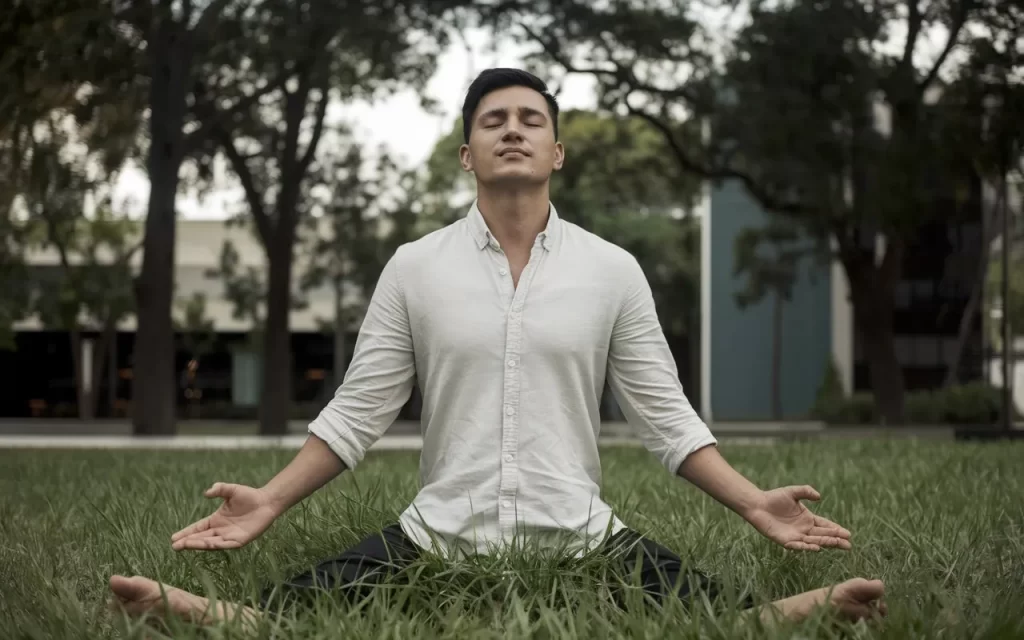Table of Contents
Many people search for natural ways to improve their well-being in today’s busy world. But how does grounding work, and why is it gaining so much attention? This essay will examine the intriguing idea of grounding, its advantages, and the hidden power of connecting with the Earth. Keep reading to discover the latest exciting updates and revelations about grounding that could change how you look at your health.
How does grounding work? What is Grounding?
Grounding, or earthing, is making direct physical contact with the Earth. This can be done by walking barefoot on grass, soil, or sand or using grounding devices. But how does grounding work? The Earth carries a natural electric charge, which can interact with the body’s energy. People believe they can experience various health benefits by reconnecting with this energy.
How Does Grounding Work? Understanding the Science Behind It
The idea behind grounding is that many negatively charged particles are on Earth. When we contact the Earth directly, these electrons can flow into the human body. But how does grounding work on a deeper level?
The human body is also a whole of electrical activity. Every heartbeat, thought, and electrical signal controls muscle movement. In modern life, we’re surrounded by devices that emit positive electrical charges, such as computers and phones. Over time, these can build up in the body, leading to stress, inflammation, and illness.
When you practice grounding, the Earth’s electrons neutralize these positive charges. This process can reduce inflammation, lower stress levels, and promote well-being. In short, grounding works by balancing the electrical charge in your body.
Health Benefits of Grounding: What Science Says
Many people who practice grounding report feeling more relaxed, energized, and focused. But what does the research say? How does grounding work to deliver these health benefits?
Reduced Inflammation
While inflammation is a typical response to injury or illness, prolonged inflammation can cause several health issues. Studies have shown that grounding helps lessen inflammation by scavenging the body of free radicals. This reduction can lead to less pain and quicker recovery from injuries.
Improved Sleep
Are you struggling with insomnia? Grounding may help. Many people report better sleep after spending time connecting with the Earth. The reason? Grounding can help reset the body’s natural circadian rhythm, leading to deeper, more restful sleep.
Lower Stress Levels
Stress is a typical issue in our hectic life. But how does grounding work to reduce stress? Research suggests that grounding helps lower cortisol levels, the hormone responsible for stress. By reconnecting with the Earth, you may feel calmer and more balanced.
How does grounding work? Latest Research and Updates on Grounding

Grounding has gained more attention recently, with exciting new studies shedding light on how grounding works and its potential benefits. Let’s explore some of the latest updates.
Grounding and Cardiovascular Health
Recent research has shown a connection between grounding and improved heart health. According to a study in the Journal of Alternative and Complementary Medicine, grounding can help lower blood pressure, increase blood flow, and potentially lessen the chance of developing heart disease.
Grounding Devices: A New Way to Reconnect
Grounding devices have become famous for those who live in cities or areas where it’s hard to connect with the Earth. These products, such as grounding mats and bed sheets, simulate the effects of grounding indoors. While research on these devices is ongoing, early results suggest they may offer some of the same benefits as traditional grounding.
How to Practice Grounding: Simple Tips for Everyday Life
Now that you understand the science behind grounding and its potential benefits, you might wonder how to make it a part of your daily routine. The good news is that grounding is simple and easily incorporated into your life. Here are some straightforward ways to practice grounding.
Walk Barefoot Outdoors
One of the most accessible and natural ways to ground yourself is by walking barefoot outside. Whether on grass, sand, or soil, direct contact with the Earth allows its electrons to enter your body, connecting you to its healing energy.
Use Grounding Mats Indoors
If you live in a city or spend most of your time indoors, grounding mats can be a great option. These mats are designed to simulate the effects of grounding by connecting you to the Earth’s energy through a conductive surface.
Spend Time in Nature
Simply spending time in nature can have grounding effects. Whether sitting on the ground, gardening, or hiking, being outdoors helps reconnect you with the Earth’s energy.
Also Read: Can You Eat After a Root Canal? Shocking Truth Revealed!

Common Myths About Grounding: Debunking the Misconceptions
As with any health practice, grounding is surrounded by myths. Let’s address some common misconceptions and explain how grounding works in reality.
Myth 1: Grounding is Just a Trend
Many people believe grounding is just a passing trend. However, grounding has been practised for centuries by cultures around the world. Recent scientific interest is shining a new light on this ancient practice.
Myth 2: Grounding is Only for Spiritual People
Grounding is often associated with spirituality, but you don’t have to be spiritual to benefit from it. Grounding works for anyone who wants to feel more connected to nature and improve their health.
Myth 3: Grounding Devices Don’t Work
While grounding outdoors is the most direct method, grounding devices can be helpful for those who cannot easily connect with nature. Research on these devices is still growing, but many users report feeling the benefits.
Grounding offers many potential benefits by reconnecting us with the Earth’s natural energy. From reducing inflammation to improving sleep and lowering stress levels, the positive impact of grounding on our health is promising. As more research emerges, it’s becoming increasingly clear that grounding is not just a passing trend—It’s an effective instrument for improving our health and well-being.




